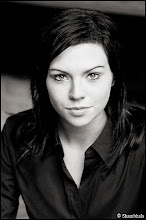As I was unable to attend the last lecture on 13.10.09, I have researched David Kolb's Theories and methods of learning to form a greater understanding of the course and discover what the work required of me.
David Kolb published his learning styles model in 1984. The model gave rise to two related terms in particular:
- Kolbs Experimental Learning Theory's (ELT)
- Kolbs Learning Styles Inventory (LSI)
He discovered fundamental concepts towards understanding human learning behaviour and towards helping others learn. From this stemmed the:
Four Stage Learning Cycle
(training cycle)
- Immediate or concrete experiences
- Observations and reflections
- Abstract concepts
- Actively tested
In more depths Kolb formed:
Stage 1: Concrete experience (Doing, having the experience)We learnt that this is a fact that has happened, with no emotional attachment.
Stage 2: Reflective observation (Reviewing, reflecting on the experience)This is what we have seen, witnessed, experienced...
Stage 3: Abstract conceptualisation (Concluding, learning from the experience)This is what you have learnt from the experience.
Stage 4: Active experimentation (Planning, trying out what you have learnt)Putting into practice what we have learnt.
There are four words to describe this learning cycle: Experiencing, Reflecting, Thinking and Acting.
Kolb believed that different people prefered a certain single learning style. He believed that our style of teaching developed from three different stages throughout our maturing:
- Acquisition- Birth to adolescence
2. Specialization- Schooling, early work and personal experiences of adult hood.
3.Integration- mid-career to later life.
Whatever influences the choice of styles the product can be displayed by two separate 'choices'
that we make:
Concrete Experience- CE (feeling)----V---- Abstract Conceptualization- AC (thinking)
Active Experimentation - AE (doing)----V---- Reflective Observation- RO (watching)
This can also be clearly demonstrated via Kolbs learning style diagram.

In our learning journals/ diary's the following instructions must be considered when entering accounts:
-Honest
-Cue Memory
-Enjoyable
-Evaluate
-Descriptive
-Reflective
-Focus, notice re-occurrences
-Develop action
-Give evidence to back up thoughts
If the diary does not contain these elements, then it is worthless as it cannot be used in the future, or be reflected on, and experiences will not be able to be drawn upon.



No comments:
Post a Comment